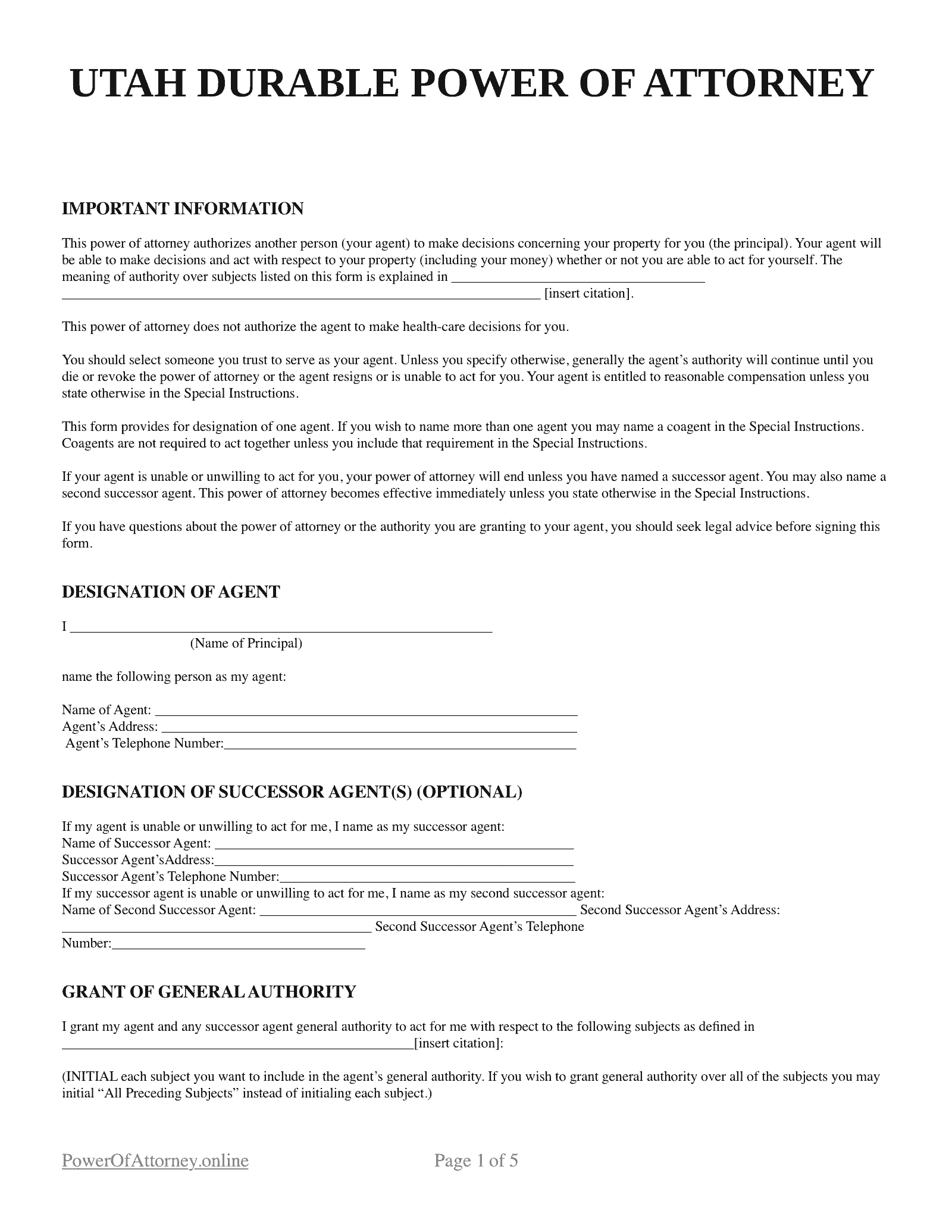Free Utah Power of Attorney Forms
A Power of Attorney (POA) is a legal document that grants a chosen individual (the agent) permission to make decisions on behalf of another person (the principle).
A POA is essential if you are ever unable to manage your affairs, for example if you become incapacitated.
Using a POA in Utah ensures that your healthcare and financial decisions are handled according to your wishes, if you’re not in a position to do so yourself.

Utah Power of Attorney by Type
The two typical types of POA forms you can create in Utah are durable and medical.
Each serves a unique purpose and offers peace of mind in different aspects of life and decision-making.
- Durable Power of Attorney: In Utah, a Durable Power of Attorney remains effective even if the principal becomes incompetent (UT Code §75-9-1052(2), meaning your agent will still be able to make decisions if you become incapacitated. This type of POA is crucial for managing financial and legal affairs.
- Medical Power of Attorney: This form is designed to address any critical healthcare decisions if you are unable to make choices for yourself. It's an essential tool for planning ahead, ensuring that you can select an agent (UT Code §75-2a-103) who will follow through with your medical preferences.
How to Get a Power of Attorney in Utah
Getting your Power of Attorney is a straightforward procedure, designed to provide peace of mind and legal clarity.
There are 2 key steps you’ll need to take:
- Determine the type of POA that best suits your needs
- Draft the document
Use a printable, state-specific POA template to simplify the entire process. These templates are tailored to meet Utah's legal requirements, ensuring the legitimacy and enforceability of your document.
Utah Power of Attorney Laws
Each state has different acts and laws that dictate how a Power of Attorney is created and sued. Utah is one of the states that has adopted the Uniform Power of Attorney Act. This act is detailed in Title 75 of Utah's Uniform Probate Code.
Title 75 explains the key requirements like mental capacity, notarization, and termination conditions for these legal documents. It also makes sure your POA is recognized across states that have adopted the same act.
In Utah, the form must be notarized (UT Code § 75-9-105), emphasizing its validity and the principal's intent in the agent's appointment.